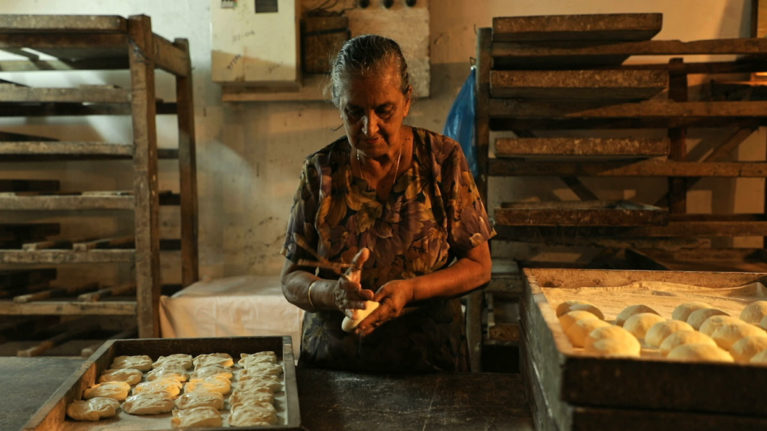The real problem isn't about a filmmaker or a film. It's about Goa masking its deeply conservative nature, with a superficial air of liberalness

It's pointless to get triggered by every controversy in cyberspace, yet some do offer insights. In the past week, cyberspace was discussing recent settlers in Goa, the issue of alienation, and a crowd-funded film that is to be made on the subject.
Kaustubh Naik, in an article titled 'How to Belong in Goa', had a "mildly enraging" response to crowdfunding appeal. The appeal came from a filmmaker settled in Aldona for a film on the issue of identity, belonging and fitting in.
Writing a day later, Dale Menezes, also an out-of-Goa based research scholar, termed his piece "The Casual Casteism of the Homeless Cosmopolitan". As he put it: "A curious figure keeps showing up in Goa (and also in certain liberal pockets of the Northeast): the homeless cosmopolitan.... They have hopped between metros all their lives, enjoyed cushy middle-class lives, studied in the UK or the US, floated through well-upholstered childhoods, and now, usually in their late twenties or thirties, decide it's time to 'move' somewhere decent: Goa. They are not really homeless. They just don't want to live in most parts of India...."
Some important issues being raised here. The gentrification of Goan villages. Real estate speculation, taking it beyond the reach of most locals. Difficulty of locals to compete with big money from Big City India. The 'outsider gaze' in film (not just notorious Bollywood, but even 'alternate cinema'). Recent settlers allegedly not bothered about local issues, and not mixing with locals. Even how "tourism, state policy and popular culture" have marketed Goa for long. Or tourists visiting Goa wanting to "stay for good'.
Then, there's the issue of privilege (and "caste capital"). Even the accusation of wanting Goa for the "freedom" it offers, while "cling(ing) tightly to the cultures they arrived with". Or aiming at "extracting from Goa".
Something struck me off with some points made though. Firstly, to judge an entirely lot of people and place them in the same bag is unfair.
Since their shift-over is primarily for reasons of lifestyle, a certain kind of self-centeredness is only expected. Just as, if I was going to New Delhi or the Gulf for higher incomes, I would not be too bothered about most issues there.
Yet, one has also come across at least some of the new settlers who care quite a bit about the place they're moving to. Some of these folks are adding value to Goa with their skills. Their question is whether they put back more than they expect, and whether Goa is smart enough to tap their skills in the way the region itself benefits.
Should people be judged on their ethnicity and origins, rather than their deeds? Can anyone, contrarily, argue that every ethnic Goan has been only pursuing what is good for Goa? Far from it.... This is as logical as the pan-Indian communalism (or global racism) that the world is struggling to deal with, and most rational people will dismiss as meaningless, simplistic and illogical.
See the original fundraising appeal, put out by writer-director Isha Ashta: https://www.instagram.com/reel/DQ8P-aZDfcF/ You might feel too that we are prejudging her work, even before she gets started. "Everyday there are these small reminders that make us feel we don't ENTIRELY belong. That reinstalls in us the feeling of truly being outsiders," she argues.
Her film "Sagar Sir" is to be about a young Bengali boy Deb, who is struggling with his Konkani classes, so finds a local language tutor (called Sagar Sir). Sagar Sir turns out to be a White man!
Ashta argues: "Belonging isn't something that is given to you. It's something that you choose for yourself. It's something that you find when you open your heart, to connection.... It's a film about finding home in unexpected places, and finding the courage to say I truly belong here."
As the world gets more intensely globalised, we are increasingly going to feel like "outsiders". Every State in India almost has worries about 'outsiders' and being swamped. So then, who really is a 'local'?
The real problem isn't about a filmmaker or a film. It's about Goa masking its deeply conservative nature, with a superficial air of liberalness. Of its inability to judge who could add value to the State, and what debates are needed. Of the tendency to demonise certain sections (not just 'outsiders' but 'locals' too) on the basis of language, caste, dialect and script, ethnicity, even religion. This has gone unchallenged for too long; it helps nobody.
Goa needs to look honestly at itself, not just point fingers at “outsiders". It needs leaders who are genuinely accountable, transparent and independent of all vested interests; a political culture where public interest---not patronage---drives decisions; and a serious crackdown on corruption, bias and favour-trading.
Goa also needs a clear, long-term vision of the sectors it wants to nurture---sustainable tourism, creative industries, agriculture, fisheries, technology, or heritage economies---and ensure that her people gain real skills, jobs and opportunities in these areas while still benefiting from the best expertise and partnerships the outside world can offer.
Lastly, in some other spaces, there seems to be a misunderstanding over crowdfunding and its potential. This is as legit a way to raise money as any other, maybe better. It all depends on the kind of people responding to your appeal, and how relevant they see the issue.
We raised a modest Rs80,000 for a Romi Konkani dictionary, which was all we needed. Documentary film-makers like Sonia Filinto (for her film on Pão, now Bread and Belonging) and Nalini Souza, have used this route in the past. Issues might not be as simple as they first seem.